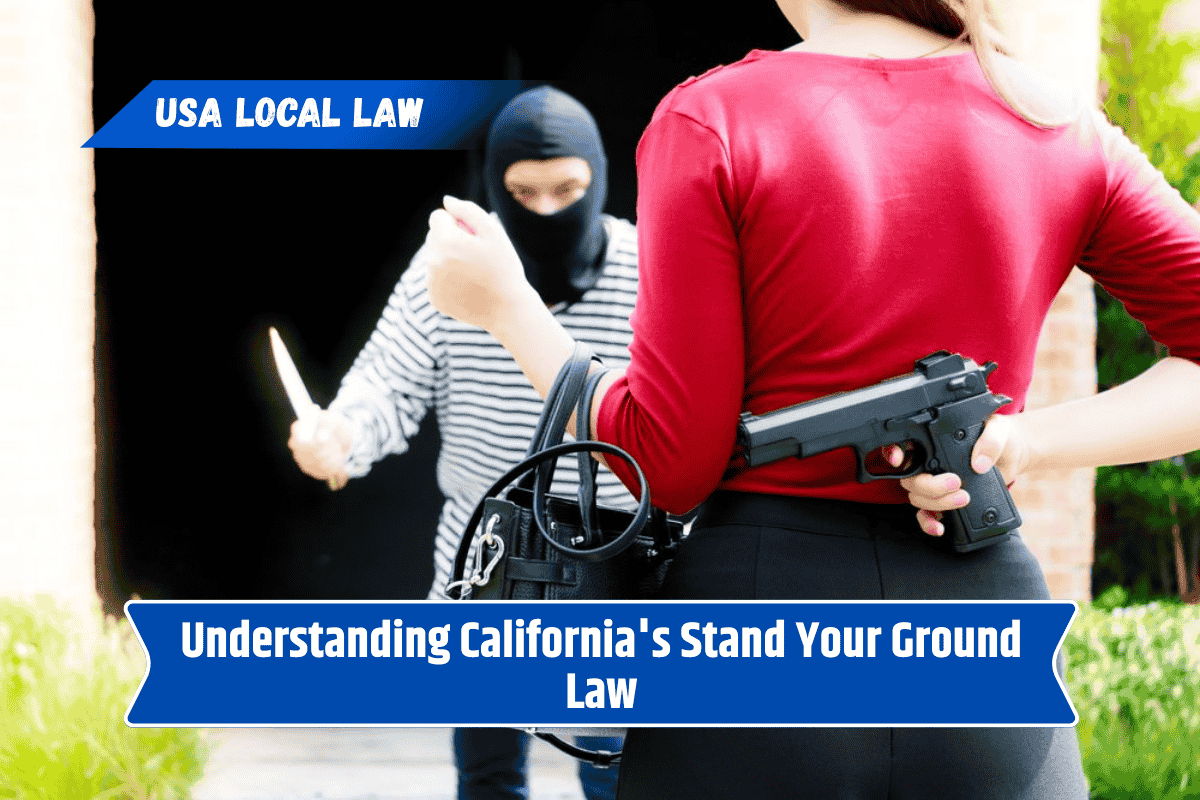When it comes to self-defence laws, every state in the US has its own rules. California follows a mix of traditional self-defence laws with a version of the “Stand Your Ground” rule. This means that under certain conditions, you can protect yourself without having to run away first.
In this article, we’ll break down what California’s Stand Your Ground law really means, how it works, and what you need to know if you ever find yourself in a dangerous situation.
What is Stand Your Ground?
The Stand Your Ground law allows people to defend themselves with force, even deadly force, without having to retreat, as long as they are somewhere they have a legal right to be. This law usually applies when someone feels that they or someone else is in immediate danger of being seriously hurt or killed.
Unlike some other states that have very strong Stand Your Ground laws, California’s version is a bit more balanced. It doesn’t have a specific statute with that title, but the concept is part of the state’s self-defence laws, developed through court decisions over time.
How California Applies the Rule
In California, if someone attacks you or threatens you with violence, and you believe you’re in serious danger, the law says you do not have to back away or leave the scene before defending yourself. This is true only if you’re in a place where you’re legally allowed to be, like your home, a public street, or even your workplace.
The key point is that your actions must be reasonable. That means if you use force, especially deadly force, it must be based on a real and honest belief that you were facing a serious threat. If a court later finds your belief was not reasonable, you could still face charges.
Duty to Retreat – Not Required in California
Some states require you to try and escape a dangerous situation before using force. That’s called a “duty to retreat.” But in California, there is no such rule. If you’re not the one who started the fight and you’re in a place you’re allowed to be, you can stand your ground.
This rule comes from jury instructions used in court, not from a written law. California courts have clearly said that there is no duty to retreat when a person is attacked and has the right to be where they are.
What If You’re in Your Home?
California also has what’s called the “Castle Doctrine.” This says that your home is your castle, and you have stronger rights to protect yourself there. If someone breaks into your home, the law usually assumes you had a good reason to use force, even deadly force, to stop them.
This makes self-defence inside your home even clearer – you are not expected to retreat, and the law may favour your right to protect your space and family.
Important Points to Remember
Even though California lets you stand your ground, there are limits. You can’t start the fight and then claim self-defence. Also, you can’t use more force than needed. For example, if someone slaps you, using a deadly weapon in response could be seen as too much.
Self-defence only works as a legal argument if your reaction was in proportion to the threat. Courts will look at the situation carefully, including your behaviour, the other person’s actions, and whether you could have avoided the conflict.
When Can You Use Deadly Force?
Deadly force means force that can kill or seriously injure someone. In California, you can only use deadly force if you truly believe that it was the only way to protect yourself or someone else from being killed, badly hurt, or sexually assaulted.
If someone was just arguing with you or threatening without a weapon, deadly force probably won’t be seen as reasonable. But if they pull a gun or knife, and you react to protect yourself, the law may protect you under Stand Your Ground.
California’s Stand Your Ground law gives people the right to defend themselves without running away, but only under reasonable circumstances. While you can protect yourself if you’re in danger, you must also act wisely.
The law does not give you a free pass to fight or harm someone just because you feel angry or threatened. Always make sure your response fits the situation.
Understanding your rights under this law can help you stay safe and legal if you ever face danger. If you’re unsure about how these laws work in a real-life situation, it’s always best to speak to a legal expert.
